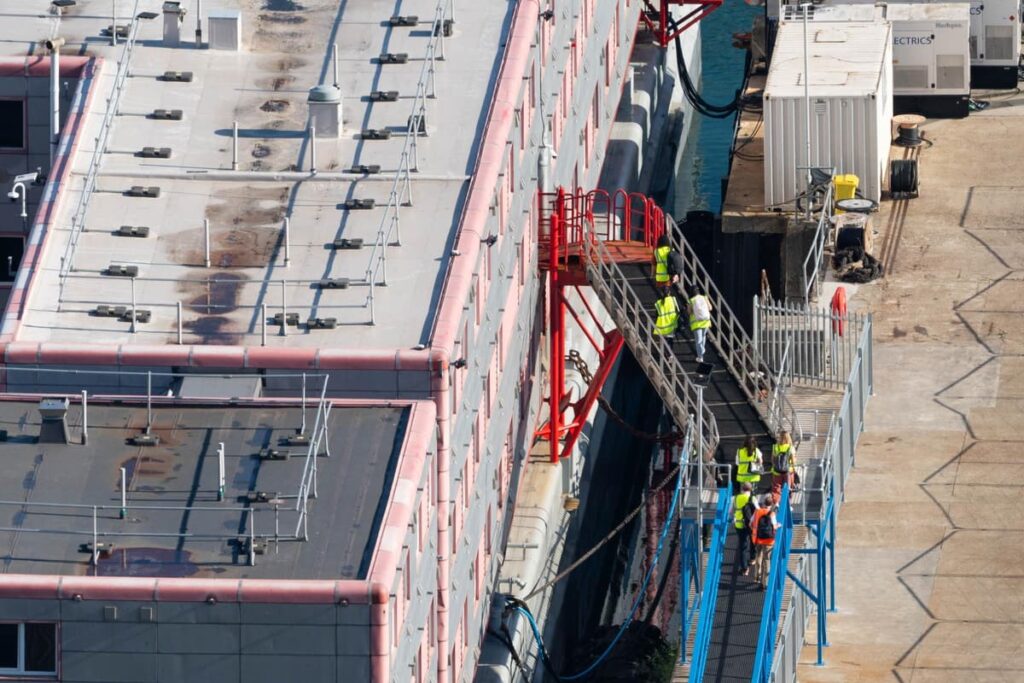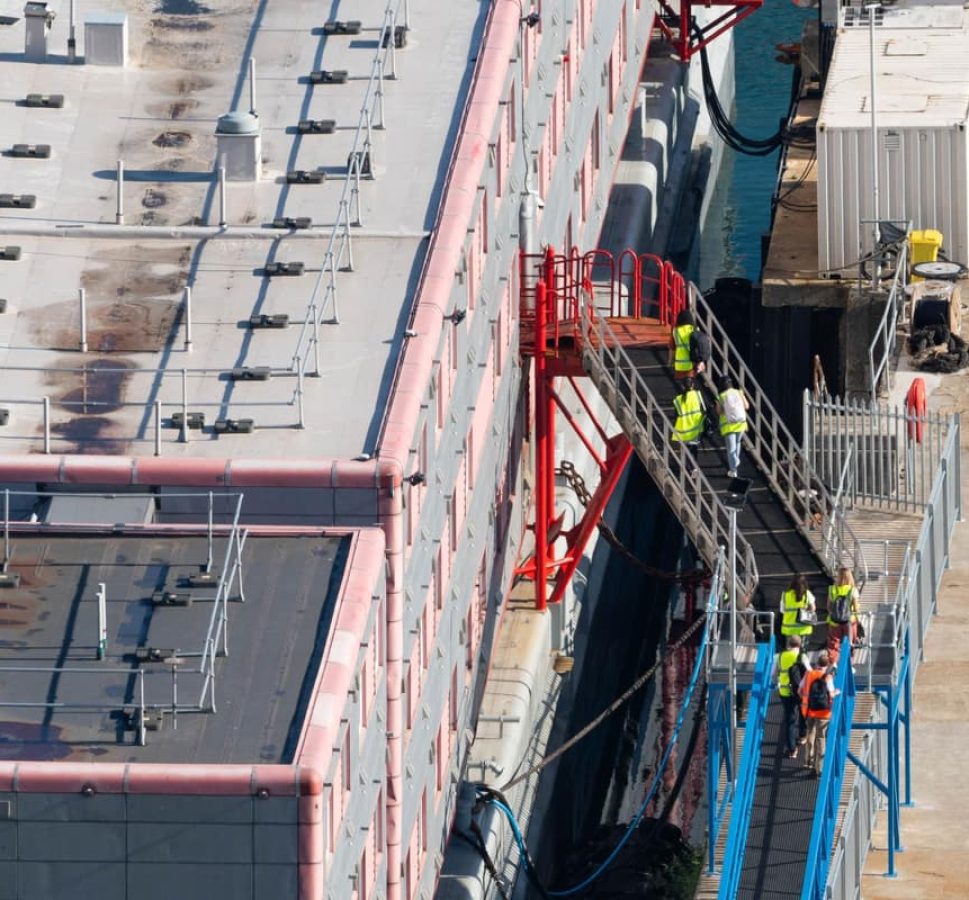
A small seaside town on the south coast of England, home to a giant migrant barge, has once again found itself at the heart of a British debate regarding the treatment of asylum seekers.
It’s a polarising site, triggering discussions, debates and protests on human rights.
On Thursday, migrants and asylum seekers returned to the infamous ‘Bibby Stockholm’ barge, more than two months after being evacuated due to legionella bacteria in the water supply.
As a coach arrived carrying the first group of asylum seekers to return to the Bibby Stockholm, protesters gathered at the gates of Portland Port, around 225 kilometres southwest of London, to decry what they view as the “inhumane” conditions aboard.
All but 10 of the 39 men evacuated are believed to have returned.
Critics say the barge, which has a capacity for 504 people, is potentially a fire hazard and treats residents as though they are in prison.
And activists and the barge residents aren’t the only ones unhappy with the arrangement- the Portland locals are also unhappy that migrants are being moved back.
Unhappy locals and asylum seekers
In one of the UK’s poorest coastal communities, the spotlight once again rests on the Bibby Stockholm barge; a 222-room, three-storey boat, chartered by the UK government for 18 months, which docked in July – and is now deemed safe again.
The UK home office has begun moving migrants back on board after they were removed in August after legionella bacteria was found in the water system — just days after they had gone aboard.
The Home Office said the barge could open its doors again after tests for the bacteria and improved fire safety protocols had been completed.
“The number of people on board will increase gradually with more arrivals in the coming days and months, as part of a carefully structured, phased approach,” a spokesperson for the department said.
However, for some of the locals of Portland, the situation is morally wrong.
“It doesn’t make any sense to me,” said local resident Stuart Harkness. “I don’t think it makes any sense to most people who really have any kind heart for other human beings.”
“I think most people are afraid of the demographic which is single men – that’s really it,” fellow Portland resident Harry Keenen told Euronews.
“They should process asylum seekers properly and if their claim is valid they should be integrated into our community,” said Susan Kelly. “I don’t agree with keeping them as prisoners, I think it’s inhumane.”
Boat housing-cheaper than hotels?
The UK’s Home Office said the use of vessels is “a tried and tested approach” to housing asylum-seekers around Europe, as well as offering value for money — a claim disputed by the non-profit organisation Reclaim the Sea.
The incident onboard the Bibby Stockholm was an embarrassing turn of events for the governing Conservative Party. The disease warning was the latest setback for its much-publicised plan to move asylum seekers onto the barge from more costly hotel accommodations around the country.
The UK government strives to make seeking asylum in the country seem less appealing while attempting to reduce the cost of dealing with a growing backlog.
As such, the Bibby Stockholm – which will eventually be home to a total of 500 men – is seen as part of a potential solution by the government. The vessel, which the government is leasing from a private company, has previously housed workers from various industries, including crews on oil rigs.
However, the backlog of asylum seekers is enormous. 175,000 people are waiting to be processed.
A Government determined to ‘stop the boats’
According to government figures, 2022 saw almost 45,000 people crossing the channel in small boats.
Prime Minister Rishi Sunak has made “stopping the boats” a priority ahead of an election expected next year. His government, which is trailing badly in most opinion polls, has proposed sending asylum seekers to Rwanda as a way to discourage people from making the journey, but the plan is stalled in the courts.
The barge intended to show there was no luxury in the UK’s asylum process.
“I think it’s an interesting strategy but I’m not sure how comfortable people are having the barge sat there with that big group of people,” said James Harrison.
“There’s lots of people coming over being assessed as to whether they’re economic migrants or refugees. I guess there’s a backlog and people need to go somewhere,” said Portland resident Jason Teale, adding “I don’t know if this is the right place where they need to go, but they need to go somewhere.
A second judicial review claim has been issued in the UK’s High Court to challenge the government’s decision. But the UK home office says it is confident the barge will house asylum seekers safely and securely.






